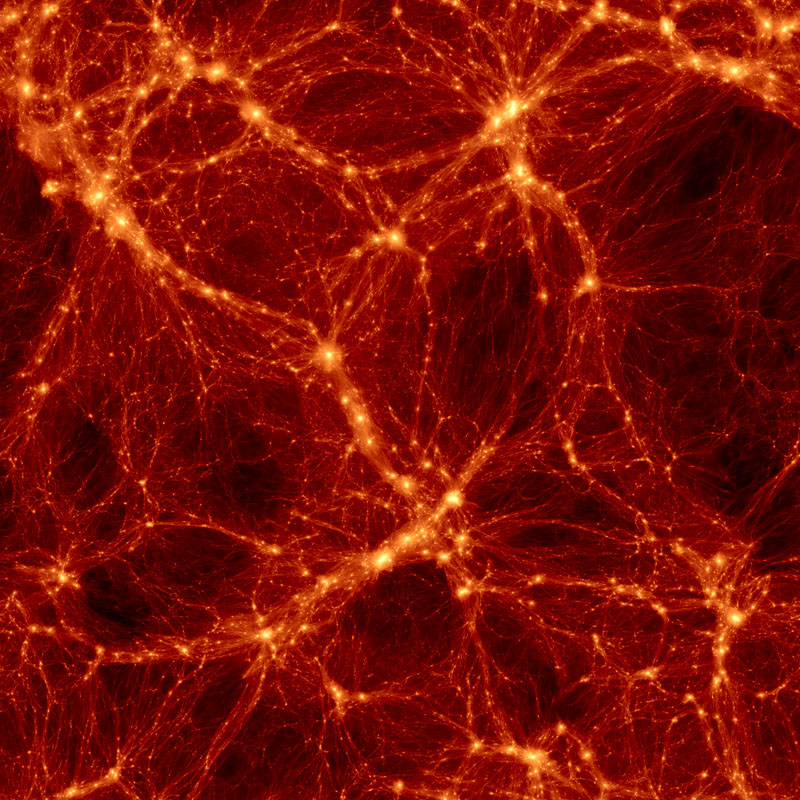 |
 |
 |
 |
 |
 |
 |
 |
 |
 |
|
Research @ KICP
|
Computational Cosmology  Overview  High-performance computing (HPC) has become an integral and indispensable part of cosmological research. During this decade, HPC has become one of the key tools in answering the most fundamental questions in cosmology. The deluge of data coming in from present and future surveys needs to be mined for cosmological information. State-of-the-art cosmological simulations, which are indispensable for planning and extracting science from cosmological observations, now routinely require millions of CPU hours of supercomputing time and tens of terabytes of storage. The need for powerful computing in the areas of data mining and large numerical simulations are well known and, by themselves, merit a strong computational cosmology presence in the PFC. The large-scale facilities required to address the challenges of peta-scale simulations and data storage/retrieval exist at the national level. Nevertheless, in order to make efficient use of the new computing opportunities at the national centers, an adequate local HPC framework for code developments and data processing must exist as well. The Computational Cosmology MA helps PFC researchers learn what they need to know to take advantage of the next generation of computers to make science breakthroughs. Activities To achieve the Computational Cosmology MA goals, the PFC is pursuing the following activities:
In order to achieve these goals, the MA has invested in the Research Computing Center's "Midway" cluster by purchasing over 500 cores solely dedicated to the KICP. An HPC professional was hired to assist researchers in utilizing today's massively parallel HPC machines. The MA has also co-hosted (with the Conferences, Workshops, and Visitors MA) a workshop on The Cosmic Web and a hands - on summer school on Computational Cosmology to train the next generation of researchers in the use of HPC resources. |





 Overview
Overview